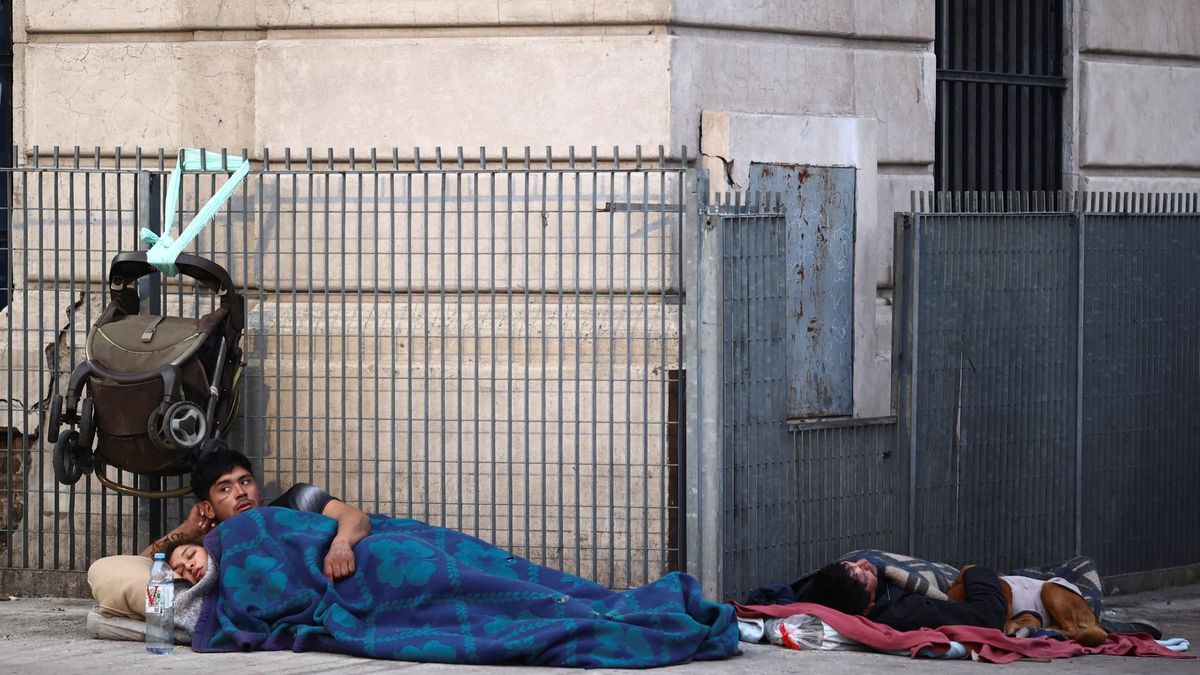According to the latest measurement by the Argentine Catholic University (UCA), Destitution increased from 9.6% to 18%: More than 7.8 million people are in a state of extreme poverty, and do not reach a minimum income that exceeds the basic food basket. Meanwhile, the Government continues to announce layoffs and public policy cuts.
“Unfortunately we have to say that 1 in 4 people in Argentina suffers from total food insecurity,” he expressed. Eduardo Donza, Researcher specializing in Labor and Inequality at the Argentine Social Debt Observatory of the UCA. And he expanded: “This is sadder when we take it to children and adolescents under 18 years of age, where it increases to 32%.”
To determine if a person is in a situation of indigence, the cost of the basic food basket established by the Consumer Price Index (CPI) is taken into account. This includes products sufficient to satisfy basic nutritional needs in calories and proteins. If the household has no income, or it is less than that amount, they are considered indigent. That is, they cannot cover services and food to survive. Today, 18% of the country’s population is in that position.
The poverty indicator increased more than 10% since the last quarter of 2023, reaching 55.5% in the first quarter of this year. More than 6 million workers, despite being formal, are poor.
The problem that irrefutably worsened during Javier Milei’s administration is structural poverty. It is no longer a question of merely economic adjustment to make ends meet, but there is a constant reduction in opportunities, jobs, access to housing, education, and adequate food. Without consistent public policies, it is almost impossible to avoid this problem.
At the moment, According to the report from the Argentine Social Debt Observatory of the UCA, 50% of children attend school cafeterias, and almost 37% receive bags with food and merchandise in these community spaces. School dropouts among adolescents also increased, reaching 6%, and the completion rate is only 13%.
Different social organizations and community spaces seek to bridge this inequality gap with donations, since the state does not provide financial support or raw materials. Although justice ordered the Ministry of Human Capital to begin distributing the tons of food they retain in warehouses, the process is slow, it is not equitable but rather selective, and at the moment the State continues without providing public details.
The Metropolitan Cathedral of Buenos Aires, for example, provides dinners from Monday to Sunday for 200 homeless people. They set up long tables in Plaza de Mayo on days when the weather permits and inside the cathedral, in the central nave, on cold or rainy nights. As resources become scarce, people increasingly come to receive charity.
Meanwhile, Milei, when asked about hunger in one of his last interviews, stated that “he does not have to deal with the emotions” of Argentines. In a context plagued by cuts, layoffs, closure of community kitchens and defunding of assistance policies, the future only allows us to anticipate the increase in these figures.
Master in Communication, Culture and Media Speeches. (UNLAM). Graduate in Social Communication (UNLAM). Professor in History. Writer. Published book “Fake News: All news is false until proven otherwise”
Source: Ambito
David William is a talented author who has made a name for himself in the world of writing. He is a professional author who writes on a wide range of topics, from general interest to opinion news. David is currently working as a writer at 24 hours worlds where he brings his unique perspective and in-depth research to his articles, making them both informative and engaging.




